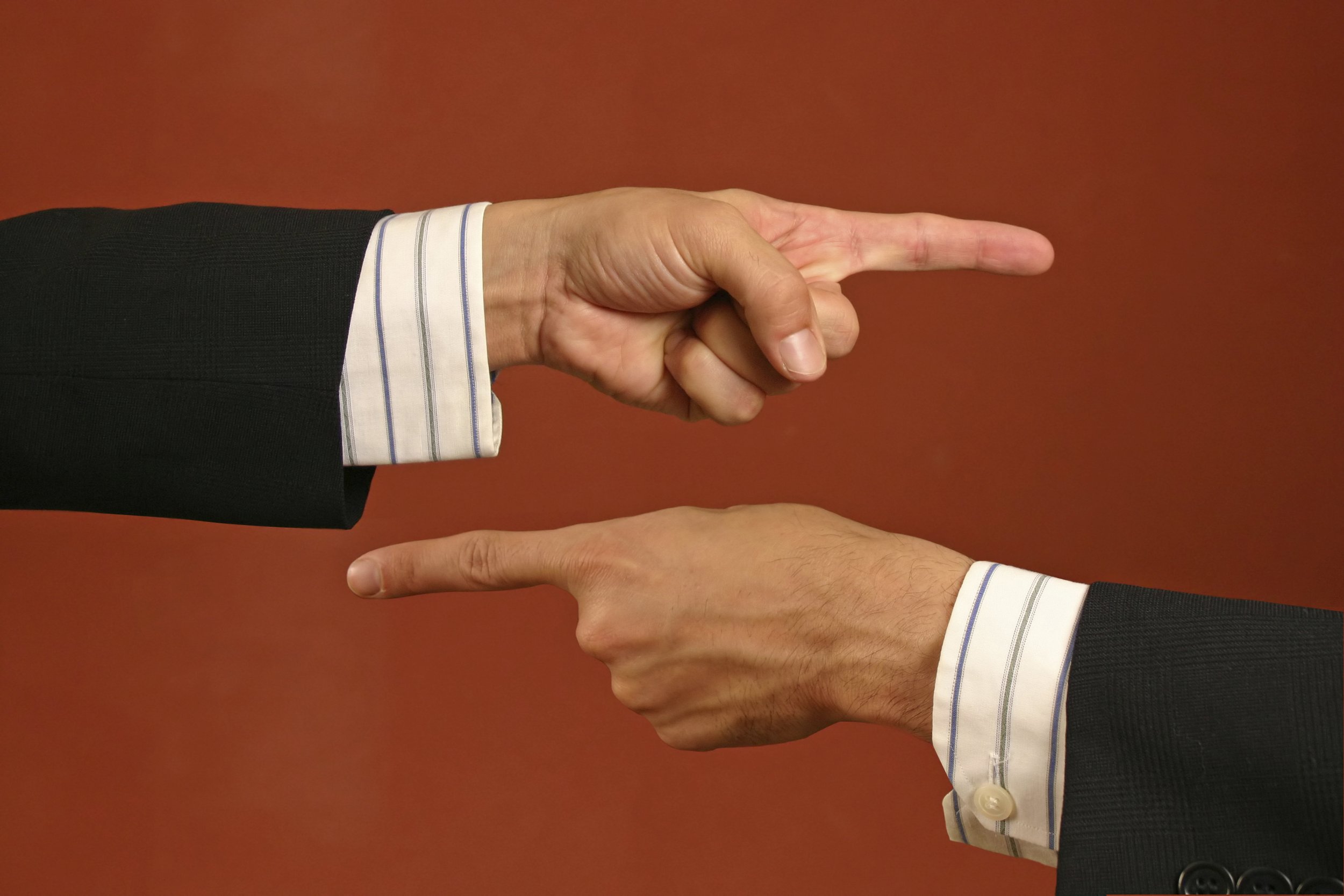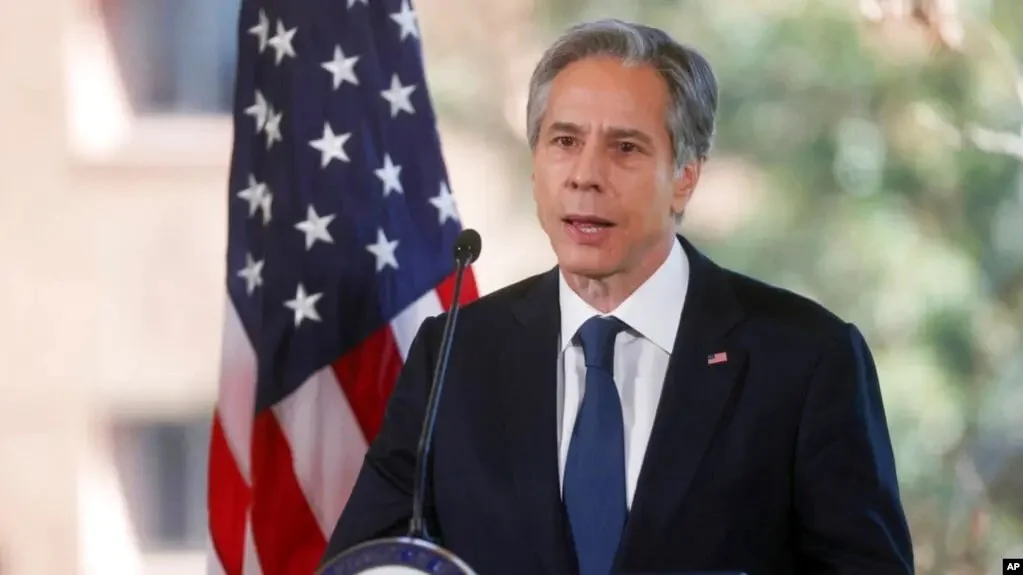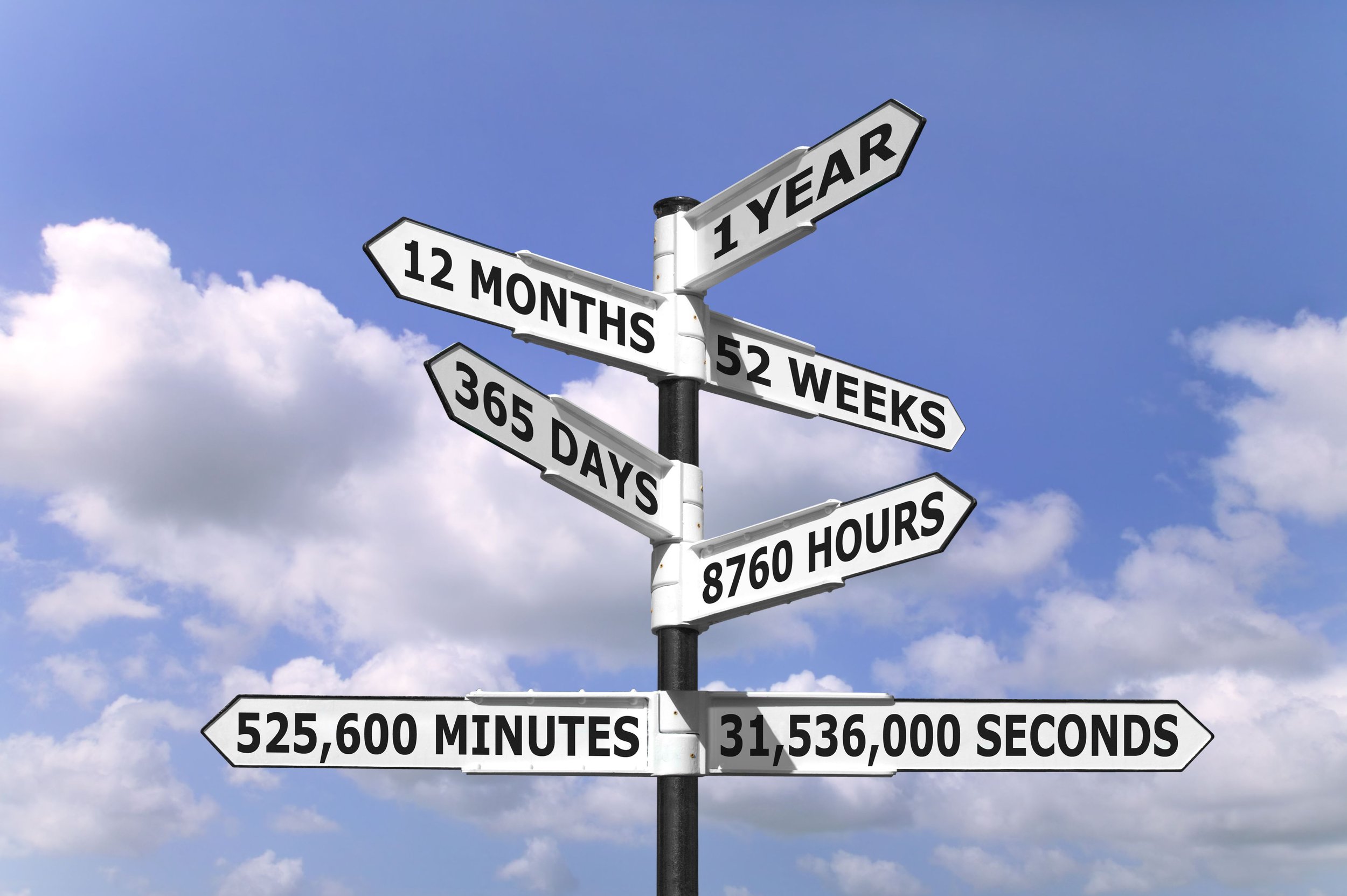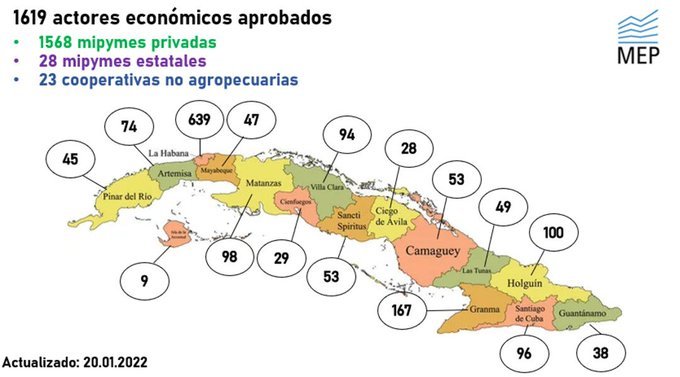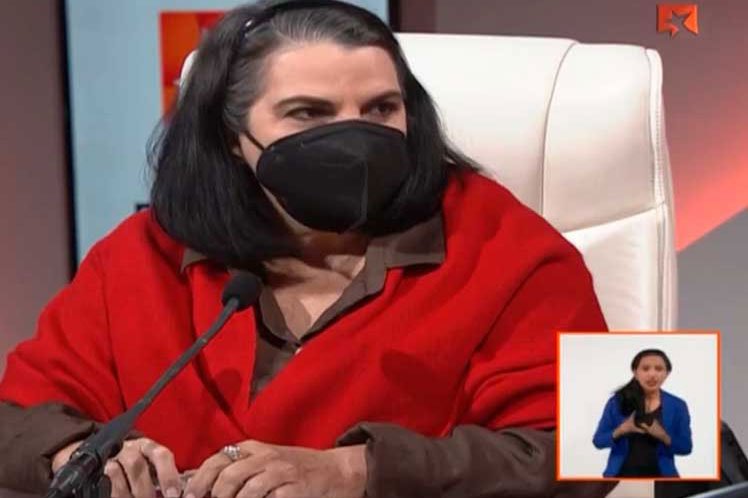H.E. Rodrigo Malmierca Díaz Minister of Foreign Trade and Foreign Investment of the Republic of Cuba.
Excerpts From Interview With Bohemia Magazine:
“Then we have other problems associated with the risk rating to do any business. In other words, Cuba is an indebted country, with certain difficulties today to be able to meet its external financial commitments. If the interested party is guided by the criteria of international risk rating agencies, it is not an attractive country to invest in”.
“These are internal decisions. The hiring of personnel through an employing agency responds to its own policies. We have been very careful to try to prevent people who work with foreign capital investments, simply for that reason, and perhaps doing the same thing as another in a state company, from earning much more.
“And that is something that we have tried to preserve through the employing agencies, although foreign investors do not like it. There are also other things they don't like, and we're not going to change them for that. For example, land ownership is State property, it is endorsed in the Constitution.
“Many foreigners want to buy the land where the hotels are going to be built. Here we do not sell it, we give it in usufruct, and it can be long-term. In other places it is sold. This sometimes makes it difficult for investors to come to Cuba.
“Now, beyond these objective obstacles, we have other subjective problems, related to deficiencies and internal failures. For example, the delays in the negotiation processes, the poor or deficient preparation of the projects and the negotiating groups. People say: 'there is a lot of bureaucracy'. Actually that is not the cause of the arrears. In the process of final approval by the Government there are no great delays, but in the companies. The required priority is not given to the IE, and these delays sometimes last for years. Of years".
Bohemia
Havana, Republic of Cuba
27 January 2022
Economy: when investment is pressing
Of external obstacles, internal obstacles, successes and dissatisfactions with foreign investment; controversies about the state monopoly, among other topics, BOHEMIA dialogues exclusively with Rodrigo Malmierca Díaz, Minister of Foreign Trade and Foreign Investment
Beyond the objective limitations, if the negotiating processes are assumed with greater efficiency, the benefits for the country would be greater, values Rodrigo Malmierca Díaz, head of the Mincex. (Photo: Yasset Llerena Alfonso).
After a nosedive, the economy begins to emerge slowly, upwards. Many plans and dreams on the Caribbean Island depend on keeping the invisible enemy at bay, the mutant of covid-19, which is turning the planet upside down again. Reaching them will not be easy. Nor impossible. That is why now, perhaps more clearly than ever, it is a question of attracting –almost falling in love– foreign investors, despite the Goliath of the North.
Cuba pursues a desired prosperity, through many sacrifices and resistance. The greatest of his riches is in the town, cheerful, enterprising, educated... However, there is still a lot of fallen leaves to sweep along the way.
Just at two in the afternoon, Rodrigo Malmierca Díaz, head of the Ministry of Foreign Trade and Foreign Investment (Mincex), enters the large meeting room impassively. After greeting us with the knuckles of the hands, we thank him for the courtesy of receiving us, despite his busy schedule.
While we taste an aromatic coffee, I review in my memory the last intervention that the Minister made before the Cuban legislators. His affirmation in the plenary: “the results with foreign investment are insufficient”, flutters in my mind.
— What problems slow down or limit the expected impact of foreign investment (EI) in the Cuban economy?
—EI is something relatively new in the Revolution. Before the triumph of January 1959, the country was practically sold to foreign capital, especially the United States. The first steps were to nationalize all those properties, the best lands, the electricity and telephone companies, the sugar mills, and rescue them for the people.
“So we spent almost 30 years of the revolutionary period without going to the IE as something we wanted. Later, at the end of the 1980s, the first attempts were made to attract foreign capital to support the economic and social development plans of the Revolution. I would say that when the first Law 77 was approved in 1995, the attempts we made to attract foreign capital were still very limited. Because we considered it a necessary evil.
“That norm was restrictive in the sense of preserving much national sovereignty – until now that interest is maintained. The same as the majority in all those businesses outside of the Cuban part, at that time few were 50 to 50. Some sectors of the economy were not open to foreign capital, for example, the sugar industry and agriculture itself. A few years ago we started promoting them.
“In the VI Party Congress in 2011, if you look at the Guidelines, EI is still spoken of as a complement to the national effort for the development of the country, and it was not considered an important element. That changes when the policies are approved, at the end of 2013, prior to the new law in June 2014.
“Already in the VII and VIII party congress, the Guidelines speak of the importance of EI as something strategic for the development of the current stage. We began to give it a more relevant role. Now, one could ask: why doesn't foreign capital come en masse to invest in Cuba?
“There are several factors. First, due to the economic, financial and commercial blockade of the United States Government, which has also intensified in recent times. Capital transfers have become very difficult, everything related to the financial sector, banks are threatened with sanctions.
“They activated Title III of the Helms-Burton Act, which allows citizens or companies to sue any company, Cuban or foreign, in the courts of the United States. All of these are real, objective obstacles that create a lot of fear.
“Then we have other problems associated with the risk rating to do any business. In other words, Cuba is an indebted country, with certain difficulties today to be able to meet its external financial commitments. If the interested party is guided by the criteria of international risk rating agencies, it is not an attractive country to invest in”.
—You referred in Parliament to investor complaints, for example, the issue of staff recruitment.
“These are internal decisions. The hiring of personnel through an employing agency responds to its own policies. We have been very careful to try to prevent people who work with foreign capital investments, simply for that reason, and perhaps doing the same thing as another in a state company, from earning much more.
“And that is something that we have tried to preserve through the employing agencies, although foreign investors do not like it. There are also other things they don't like, and we're not going to change them for that. For example, land ownership is State property, it is endorsed in the Constitution.
“Many foreigners want to buy the land where the hotels are going to be built. Here we do not sell it, we give it in usufruct, and it can be long-term. In other places it is sold. This sometimes makes it difficult for investors to come to Cuba.
“Now, beyond these objective obstacles, we have other subjective problems, related to deficiencies and internal failures. For example, the delays in the negotiation processes, the poor or deficient preparation of the projects and the negotiating groups. People say: 'there is a lot of bureaucracy'. Actually that is not the cause of the arrears. In the process of final approval by the Government there are no great delays, but in the companies. The required priority is not given to the IE, and these delays sometimes last for years. Of years".
— Is it a mentality problem?
—Prejudice influences this, because it is true that we spent more than 30 years thinking that EI was a bad thing, and we didn't want it. Some people still have that stuck in their heads. And since December 2016, the army general in a closing of the National Assembly of People's Power, spoke about this, and made a call to banish those prejudices.
“However, it is easier to say it, than for people to really change their mentality. They are subjective, transversal problems in the economy and we have to solve them”.
— Is there a lack of company culture?
—In Cuba we have problems with investments in general. The processes are slow. Feasibility studies do not always comply with what was initially projected. You say, I'm going to do this, I'm going to have a percentage rate of return on investment, and in three or five years I'll pay back the financing. And that in the end is not fulfilled. Neither with foreign investment, nor with the national one.
“With foreign capital we have the challenge that the foreign investor feels attracted to do the business. The attractions that we put at his disposal are not enough, that the staff is prepared and can quickly take on new technologies, the country's stable environment, the tax incentives granted by law. All of that helps. But if the man says: 'I'm going to go to Cuba, and in addition to defying the pressures of the US government, it turns out that they don't give me prompt attention.' Whoever has capital is going to invest it with the aim of making money. If you have to spend a year negotiating, of course that is not attractive.
Economy: when investments are urgent.
The financial measures imposed by the Trump administration were designed – with macabre precision – to strangle the Cuban economy. (Photo: Martha Vecino Ulloa).
“That is why we say, despite all the problems, the blockade, Cuba's risk rating, that we do not have the liquidity to meet our obligations, if we were more efficient when dealing with these negotiation processes, we would have better results.
“That is a battle that we have to fight from the Mincex, because we are the rectors of this activity, and we are called to win it in all sectors of the economy. Because that is where the companies are, the negotiating groups that interact with foreign capital.”
— How much do EI contribute to the national economy?
—Since Law 118 was approved, until today, there are deals agreed for more than 7,000 million dollars. It's not little.
— Is that capital already operational?
—Not everything is operational, because that is another problem. Sometimes we approve the business, and the capital cannot come because the banks do not transfer it. We have this type of difficulties that are closely linked to the US government's blockade.
“If you look at, for example, Cuban exports of rum, tobacco, nickel, telecommunications, they are mainly carried out by businesses with foreign capital. The millions of dollars that Cuba exports, thanks to these associations, add up to many. This is a sample of what the Party and the Government maintain, we need EI, it is good for the economy and we have to promote it”.
Economy: when investments are urgent.
—In Parliament, the deputy prime minister, and head of Economy and Planning, Alejandro Gil Fernández, criticized the EI. What changes result from this?
—At another time there was a lot of foreign capital invested in the substitution of imports, production and services for the Cuban population. Then they collected those cucs, went to the bank and exchanged them for dollars. Now they cannot do that, because there is a very strict exchange control. Today the country has no liquidity.
“We agree with the deputy prime minister. Today the new IE that we create must be sustainable from the point of view of liquidity in foreign currency, export, or sell in the Mariel Special Development Zone (ZEDM), which operates in foreign currency.
“Many businesses from previous times, from the 90s, had failures in the time of agreement, and we have dissolved them. Some, because they did not meet the intended objective. For example, some said: we are going to build four hotels here. So, time passed, but they didn't do any.
“Today businesses are established with a pattern of performance. You have six months to start the investment, and if you can't, you must tell us, so we can evaluate if we dissolve it, or what we do. That cannot be eternal. There are others that we have renewed, they are maintained, and they work well.
“Law 118 on Foreign Investment has a key idea: all businesses with foreign capital are approved by the Government on a case-by-case basis. In the rest of the world this is not the case. But in Cuba that is the guarantee that this EI pays taxes to the economic and social development plans, we do not sacrifice sovereignty, the financing has a legal source, and the future is not mortgaged”.
— What are the possibilities for the new economic actors (Mipymes, CNA) to open up to EI?
—In order to have access to the IE, it is mandatory for the Cuban party to be a legal entity, as established by Law 118. Mipymes are already companies and achieve that legal status. The latest adjustments we made to the policy give the possibility for a Mipyme, or a CNA, to do business with foreign capital.
“What doesn't change? What I just explained. That is approved by the Government, it is not for free enterprise. They go through the same procedures as the state company. Same. Without differentiated treatment for one or the other”.
— How many foreign trade MSMEs have already been approved? The last data is three.
-Yes. There are several, but they have the objective of dedicating themselves fundamentally to foreign trade of non-state forms of management. They are not formed to associate with foreign capital, although they could do so eventually.
“In Cuba, wholesale trade is really very limited, and that creates problems for the non-state sector. That's why when you want to import things, perfect, you can do it through the specialized companies that are state-owned. In the Eighth Congress of the Party, in the Central Report, the army general reiterated that foreign trade will continue to be a State monopoly”.
island rocking
From the academy there are repeated controversies related to the monopoly of foreign trade in Cuba. Not with an eye on private management, but on strengthening the socialist state company.
The practice, criterion of truth, reaffirms that the entities approved to carry out these activities directly have improved their management and income. Like from night to day. In the last Round Table carried out by BOHEMIA, the results and arguments of the Shrimp Company were very eloquent.
- What do you think?
“We have to look at this with an open mind. In our country there are thousands of companies, if each one did foreign trade, I doubt very much that they would do it efficiently. This activity has certain conditions, you have to prepare very well to exercise it. About seven or eight years ago we did something that we call concentration of purchases.
"What was that? The products of widespread use, such as tires or fertilizers, we said: we are going to import them centrally. Why? Because the more volumes we imported, the cheaper it was, and the more conditions we had to organize distribution, according to the economic plan. In practice, this showed very good results for the country. Saved tens of millions of dollars.
“In the current conditions, what are we doing? Giving more value to consignments. What is a consignment? It is a warehouse, which is here, the foreign supplier pays for the warehouse and the risk of having those goods there until they are purchased. Although of course, the consignment tire is more expensive. But what is the attraction? Well, I go and buy it today. I don't have to wait a month for the boat with the tires. This has to be balanced.
“We want, above all, exporting companies to bring them the benefits for this concept. In this sense, we have given many entities, even small ones, the power to carry out foreign trade. But they have to learn to do it right. Something similar happens in the world, not all companies do this activity, only the specialized ones. The others are supplied by the wholesalers who buy these goods”.
—Of course, in an environment of strong competition. Because there it does not happen that for a piece of paper, or a stamp, a management is delayed.
-Of course. That kind of thing can't happen. I am very aware of this because the companies rightly tell us: 'I need the raw material, they said it would arrive this month, and it will not arrive until next month'. When you go deeper into that, the contract was made late, because there was no money; or the supplier, with whom you already had a debt, cut off the supplies, waiting for the previous payment.
“The same thing happens, when they had everything ready, they couldn't ship the container because there are many problems with transportation and associated delays. We have containers stranded in various places. Due to covid-19 there is a very difficult situation, the price of freight has tripled. With money in hand, sometimes you can't bring things either. There are many factors that influence that. It is not, with all due respect to academics, that you can or cannot do foreign trade directly”.
— With the transition to financial planning, will the possibilities of further decentralizing foreign trade be more expeditious?
“That has associated complications. It is not just about the actual activity of foreign trade. It has to do with planning, wholesale trade. They are different factors.
Bohemia
Havana, Republic of Cuba
27 January 2022
Economía: cuando apremian las inversiones
De obstáculos externos, trabas internas, aciertos e insatisfacciones con la inversión extranjera; polémicas sobre el monopolio estatal, entre otros temas, dialoga BOHEMIA en exclusiva con Rodrigo Malmierca Díaz, ministro de Comercio Exterior y la Inversión Extranjera
Más allá de las limitaciones objetivas, si se asumen los procesos negociadores con mayor eficiencia, los beneficios para el país serían superiores, valora Rodrigo Malmierca Díaz, titular del Mincex. (Foto: Yasset Llerena Alfonso).
Luego de una caída en picada, la economía comienza a emerger de manera lenta, ascendente. De mantener a raya al enemigo invisible, mutante de la covid-19, que vuelve a virar al revés el planeta, dependen muchos planes y sueños en la Isla caribeña. Alcanzarlos no será fácil. Tampoco imposible. Por eso ahora, quizás con mayor claridad que nunca, se trata de atraer –casi enamorar– a los inversores foráneos, a pesar del Goliat del Norte.
Cuba persigue una prosperidad anhelada, a golpe de muchos sacrificios y resistencias. La mayor de sus riquezas está en el pueblo, alegre, emprendedor, instruido… Sin embargo, todavía queda mucha hojarasca que barrer en el camino.
Justo a la dos de la tarde entra, impasible, al amplio salón de reuniones, Rodrigo Malmierca Díaz, titular del Ministerio de Comercio Exterior y la Inversión Extranjera (Mincex). Luego de saludarnos con los nudillos de las manos, le agradecemos por la gentileza de recibirnos, a pesar de su abultada agenda.
Mientras degustamos un aromático café, repaso en la memoria la última intervención que hiciera el Ministro ante los legisladores cubanos. Su afirmación en el plenario: “los resultados con la inversión extranjera son insuficientes”, revolotea en mi mente.
— ¿Qué problemas frenan o limitan el impacto esperado de la inversión extranjera (IE) en la economía cubana?
—La IE es algo relativamente nuevo en la Revolución. Antes del triunfo de enero de 1959, el país estaba vendido prácticamente al capital extranjero, sobre todo, a los Estados Unidos. Los primeros pasos fueron nacionalizar todas esas propiedades, las mejores tierras, las compañías de electricidad y teléfono, los centrales azucareros, y rescatarlos para el pueblo.
“Así nos pasamos casi 30 años del período revolucionario sin acudir a la IE como algo que deseáramos. Después, a finales de los años 80, se comenzaron a hacer los primeros intentos de atraer el capital extranjero para apoyar los planes de desarrollo económico y social de la Revolución. Diría que cuando se aprobó la primera Ley 77 en 1995, todavía eran muy limitados los intentos que hacíamos para atraer al capital extranjero. Porque lo considerábamos como un mal necesario.
“Aquella norma era restrictiva en el sentido de preservar mucho la soberanía nacional –hasta ahora se mantiene ese interés. Igual, que la mayoría en todos esos negocios fuera de la parte cubana, en esa época pocos eran 50 a 50. Algunos sectores de la economía no estaban abiertos al capital externo, por ejemplo, la industria azucarera y la propia agricultura. Hace pocos años fue que comenzamos a promoverlos.
“En el VI Congreso del Partido en 2011, si revisa en los Lineamientos, todavía se habla de la IE como un complemento del esfuerzo nacional por el desarrollo del país, y no se consideraba un elemento importante. Eso cambia cuando se aprueban las políticas, a finales de 2013, previo a la nueva ley en junio de 2014.
“Ya en el VII y VIII congreso partidista, los Lineamientos hablan de la importancia de la IE como algo estratégico para el desarrollo de la actual etapa. Empezamos a darle un papel más relevante. Ahora, uno pudiera preguntar: ¿por qué el capital extranjero no viene masivamente a invertir en Cuba?
“Son varios factores. Primero, por el bloqueo económico, financiero y comercial del Gobierno de los Estados Unidos que además se ha recrudecido en los últimos tiempos. Se han hecho muy difíciles las transferencias de capital, todo lo relacionado con el sector financiero, los bancos están amenazados de sanciones.
“Activaron el Título III de la Ley Helms-Burton, que le permite a ciudadanos o empresas demandar en los tribunales de los Estados Unidos a cualquier empresa, cubana o extranjera. Todo eso son obstáculos reales, objetivos, que crean mucho temor.
“Después tenemos otros problemas asociados a la calificación de riesgo para hacer cualquier negocio. O sea, Cuba es un país endeudado, con determinadas dificultades hoy para poder cumplir con sus compromisos financieros externos. Si el interesado se guía por los criterios de las calificadoras de riesgo internacionales, no es un país atractivo para invertir”.
—Usted se refirió en el Parlamento a quejas de los inversores, por ejemplo, el tema de la contratación del personal.
—Estas son decisiones internas. La contratación del personal a través de una agencia empleadora responde a políticas propias. Hemos sido muy cuidadosos en tratar de evitar que las personas que trabajan con inversiones de capital extranjero, simplemente por esa razón, y a lo mejor haciendo lo mismo que otra en una empresa estatal, gane mucho más.
“Y eso es algo que hemos tratado de preservar por las vías de las agencias empleadoras, aunque no les gusta a los inversionistas foráneos. También hay otras cosas que no les gusta, y no por ello vamos a cambiarlas. Por ejemplo, la propiedad de la tierra es patrimonio del Estado, está refrendado en la Constitución.
“Muchos extranjeros quieren comprar el terreno donde se van a construir los hoteles. Aquí no lo vendemos, lo cedemos en usufructo, y puede ser a largo plazo. En otros lugares sí se vende. Esto a veces dificulta que los inversores vengan a Cuba.
“Ahora, más allá de estos obstáculos objetivos, tenemos otros problemas subjetivos, relacionados con deficiencias y fallas internas. Por ejemplo, las demoras de los procesos de negociación, la mala o deficiente preparación que tienen los proyectos y los grupos negociadores. La gente dice: ‘hay mucha burocracia’. En realidad esa no es la causa de los atrasos. En el proceso de aprobación final por parte del Gobierno no están las grandes dilaciones, sino en las empresas. No se le da la prioridad requerida a la IE, y esas tardanzas, a veces, son de años. De años”.
— ¿Es un problema de mentalidad?
—En esto influyen los prejuicios, porque es verdad que nos pasamos más de 30 años pensando que la IE era algo malo, y no la queríamos. Alguna gente todavía tiene eso metido en la cabeza. Y desde diciembre de 2016, el general de ejército en una clausura de la Asamblea Nacional del Poder Popular, habló de esto, e hizo un llamado a desterrar esos prejuicios.
“No obstante es más fácil decirlo, a que las personas de verdad cambien la mentalidad. Son problemas subjetivos, transversales en la economía y tenemos que resolverlos”.
— ¿Falta cultura empresarial?
—En Cuba tenemos problemas con las inversiones en general. Los procesos son lentos. Los estudios de factibilidad no siempre cumplen con lo que se proyectó inicialmente. Usted dice, voy a hacer esto, tendré una tasa de retorno de la inversión de tanto por ciento, y en tres o cinco años recupero el financiamiento. Y eso al final no se cumple. Ni con la inversión extranjera, ni con la nacional.
“Con el capital extranjero tenemos el desafío de que el inversionista foráneo se sienta atraído a hacer el negocio. No basta con los atractivos que ponemos a su disposición, de que el personal esté preparado y pueda asumir las nuevas tecnologías de manera rápida, el ambiente de estabilidad del país, los incentivos fiscales que concede la ley. Todo eso ayuda. Pero si el hombre dice: ‘voy a ir a Cuba, y además de desafiar las presiones del Gobierno norteamericano, resulta que no me dan una atención rápida’. Quien tiene capital lo va a invertir con el objetivo de ganar dinero. Si se tiene que meter un año negociando, por supuesto que eso no es atractivo.
Economía: cuando apremian las inversiones.
Las medidas financieras impuestas por la administración Trump fueron diseñadas –con macabra precisión– para estrangular la economía cubana. (Foto: Martha Vecino Ulloa).
“Por eso decimos, a pesar de todos los problemas, del bloqueo, de la calificación de riesgos de Cuba, que no tenemos liquidez para cumplir las obligaciones, si fuéramos más eficientes a la hora de enfrentar estos procesos de negociación, tendríamos mejores resultados.
“Esa es una batalla que tenemos que echar desde el Mincex, porque somos los rectores de esta actividad, y estamos llamados a ganarla en todos los sectores de la economía. Porque ahí es donde están las empresas, los grupos negociadores que interactúan con el capital extranjero”.
— ¿A cuánto ascienden los aportes de la IE a la economía nacional?
—Desde que se aprobó la Ley 118, hasta la actualidad, hay negocios pactados por más de 7 000 millones de dólares. No es poco.
— ¿Ese capital ya está operativo?
—No todo está operativo, porque ese es otro problema. A veces aprobamos el negocio, y el capital no puede venir porque los bancos no lo transfieren. Tenemos ese tipo de dificultades que están muy vinculadas al bloqueo del Gobierno norteamericano.
“Si se miran, por ejemplo, las exportaciones cubanas de ron, tabaco, níquel, telecomunicaciones, son principalmente realizadas por negocios con capital extranjero. Suman muchos los millones de dólares que Cuba exporta, gracias a esas asociaciones. Ello es una muestra de lo que sostienen el Partido y el Gobierno, la IE nos hace falta, es bueno para la economía y tenemos que impulsarla”.
Economía: cuando apremian las inversiones.
—En el Parlamento, el viceprimer ministro, y titular de Economía y Planificación, Alejandro Gil Fernández, hizo críticas a la IE. ¿Qué cambios se derivan de esto?
—En otro momento había mucho capital extranjero invertido de cara a la sustitución de importaciones, las producciones y servicios para la población cubana. Entonces ellos cobraban esos cuc, iban al banco y los cambiaban por dólares. Ahora no pueden hacer eso, porque hay un control de cambio muy estricto. Hoy el país no tiene liquidez.
“Coincidimos con el viceprimer ministro. Hoy la nueva IE que hagamos debe tener sostenibilidad desde el punto de vista de la liquidez en divisa, exportar, o vender en la Zona Especial de Desarrollo Mariel (ZEDM), que opera en divisas.
“Muchos negocios de épocas anteriores, de los años 90, tenían fallas en el tiempo de concertación, y los hemos disuelto. Algunos, porque no cumplieron con el objetivo previsto. Por ejemplo, unos decían: vamos a hacer aquí cuatro hoteles. Entonces, pasaba el tiempo, pero no hacían ninguno.















